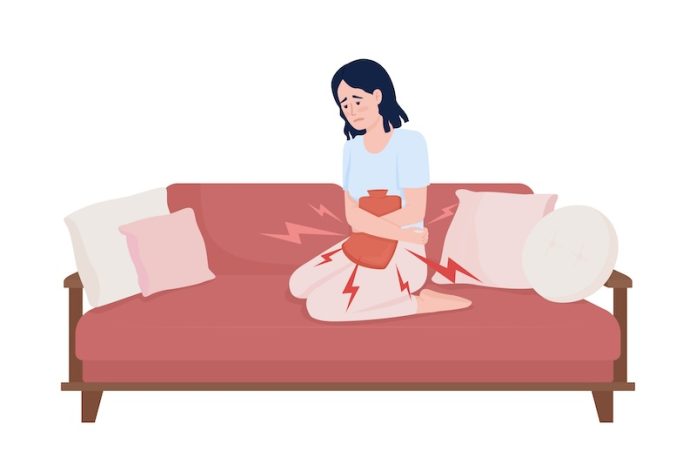
Polycystic ovary syndrome (PCOS) is a health condition that affects about 10% of women of childbearing age, making it one of the most common hormonal disorders among women.
It’s characterized by irregular menstrual periods, excess androgen levels (male hormones), and polycystic ovaries.
But what causes PCOS? Let’s explore this in simple terms, based on what research tells us.
Firstly, genetics plays a significant role. If you have family members with PCOS, your risk of developing it is higher. Studies have identified specific genes associated with the condition, suggesting that PCOS can be inherited.
These genetic links help explain why PCOS often runs in families, though no single gene causes the disorder by itself. Instead, it’s likely that many genes contribute, each altering the balance of hormones in subtle ways that lead to the condition.
Hormonal imbalances are the core of PCOS. Women with PCOS often have higher levels of androgens, or male hormones, which can prevent the ovaries from releasing an egg during each menstrual cycle and can cause extra hair growth and acne, two of the hallmarks of PCOS.
The reasons for these elevated androgens are still being studied, but they are a clear marker of the syndrome.
Insulin resistance is another key factor linked to PCOS. Insulin is a hormone that helps your body use sugar from foods for energy. When cells become resistant to insulin, blood sugar levels can rise and the body might produce more insulin to compensate.
High insulin levels increase the production of androgens, which can lead to difficulty with ovulation, acne, and growth of excess hair. Obesity can exacerbate insulin resistance and further increase the severity of PCOS symptoms, though women of all sizes can be affected.
Inflammation has also been noted as a contributing factor. Women with PCOS often have increased levels of inflammation in their body.
Research indicates that this inflammation might stimulate polycystic ovaries to produce androgens, which can lead to heart and blood vessel problems.
The source of this inflammation may be related to being overweight, poor dietary choices, and other lifestyle factors, though the exact connections are still under investigation.
The role of lifestyle and environmental factors in PCOS is increasingly recognized. Poor eating habits, physical inactivity, and exposure to certain endocrine-disrupting chemicals are thought to influence the development and severity of PCOS.
A diet high in refined carbohydrates, for example, can lead to insulin resistance, which might worsen PCOS symptoms.
Similarly, pollutants and toxins that interact with hormones in the body could potentially play a role in its development, although more research is needed to understand these connections fully.
Addressing PCOS involves managing symptoms and addressing the underlying hormonal and metabolic imbalances. Lifestyle changes like diet improvement, regular physical activity, and weight management can significantly impact insulin resistance and hormone levels, helping to alleviate symptoms.
For some, medication to regulate menstrual cycles, manage insulin levels, or reduce androgen levels may also be necessary.
Understanding PCOS is crucial for effective management and treatment. While the exact causes are complex and not fully understood, recognizing the interplay of genetics, hormones, and lifestyle factors can help individuals and healthcare providers develop comprehensive strategies for dealing with this challenging condition.
With ongoing research, the hope is that future treatments will become even more targeted and effective, improving the quality of life for those affected by PCOS.
If you care about medicine, please read studies that vitamin D could help lower the risk of autoimmune diseases, and drug for inflammation may stop spread of cancer.
For more information about medicine, please see recent studies about which drug can harm your liver most, and results showing this drug can give your immune system a double boost against cancer.
Copyright © 2024 Knowridge Science Report. All rights reserved.



